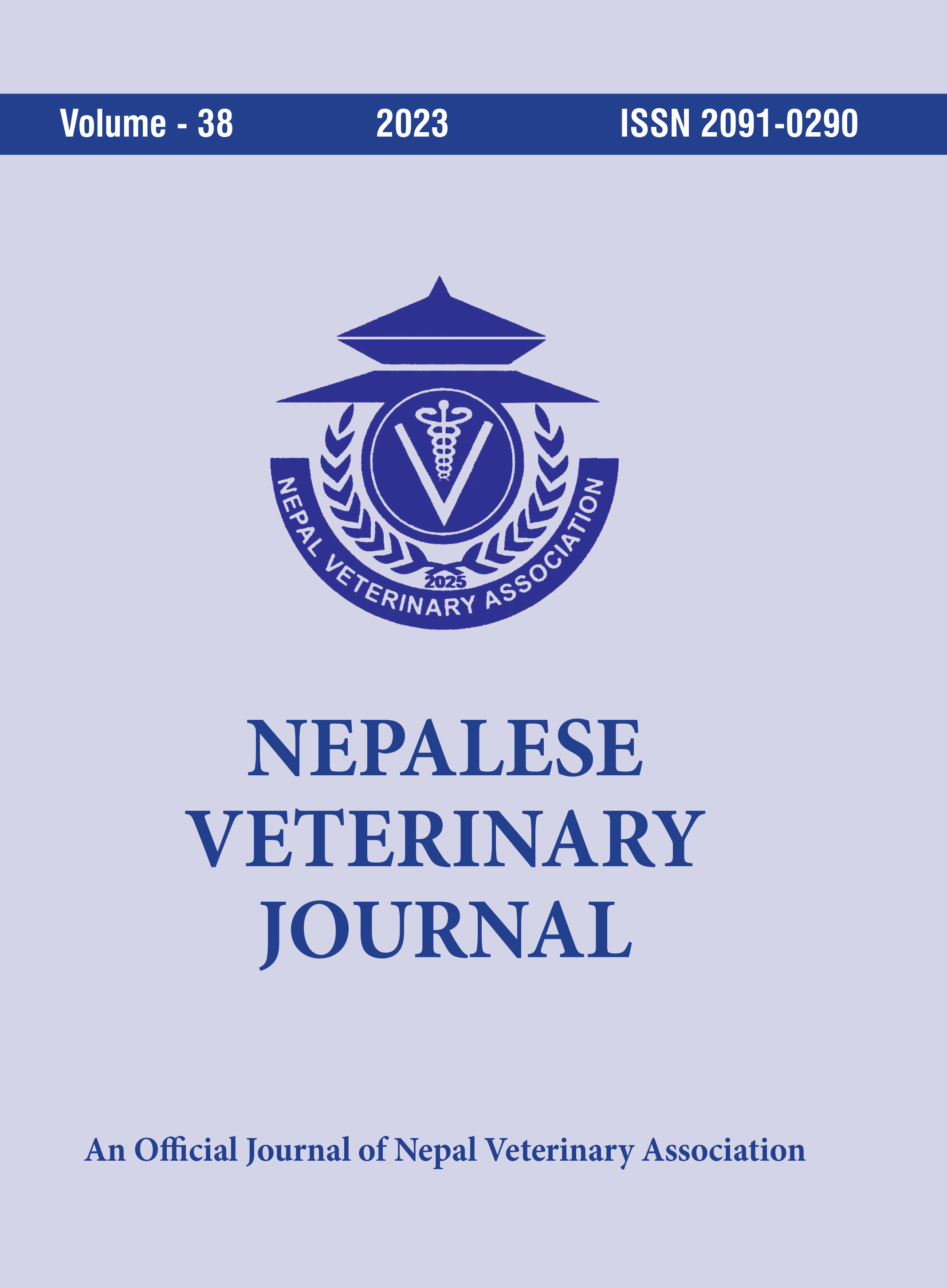Study of Prevalence of Paramphistomum cervi in domestic ruminants of Pokhara Lekhnath Metropolitan City, Kaski
DOI:
https://doi.org/10.3126/nvj.v38i1.55866Keywords:
Paramphistomum cervi, Prevalence, Ruminants, SeasonAbstract
Pramphistomum cervi has been a neglected but very crucial trematode parasite causing huge unseen economic loss in ruminant production globally. It has become an endemic species of fluke predominant in tropics and subtropics of Nepal. This study was aimed to estimate the overall prevalence of Pramphistomum cervi eggs in different domestic ruminant species of Pokhara Lekhnath Metropolitan City of Kaski district and to find the interaction of prevalence with other variables. A cross sectional study was performed to study the prevalence of Paramphistomum cervi eggs identified by Parasitological unit of Veterinary Hospital and Livestock Service Experts Centre, Kaski from January 2021 to April 2022. Out of 900 observations,842 observations with complete information were filtered out and included in our study. Statistical analysis was done with EpiInfo (Version 7.2.4.0) and graphical representation was done with MS Excel 2016. The overall prevalence of Pramphistomum cervi in different species of domestic ruminants was found to be 16.98%(143/842). The highest prevalence was seen in Cattle that was18.21% (45/247), followed by goats 16.66% (5/30) and buffaloes 16.46% (93/565). Seasonwise study of prevalence of Paramphistomum cervi in all the three ruminant species showed the highest overall infectivity during summer i.e 20.42% (88/431) followed by 13.38% (55/411) in winter and this difference was statistically significant (p-value 0.0065 at 95%CI). The higher prevalence of parasite was observed in adult lactating females of improved breeds. Thus, Paramphistomum cervi infection has become an important animal health issue to be addressed for safeguarding animal health and improvement of ruminant production in Pokhara Lekhnath Metropolitan City, Kaski. The biological intermediate host control measures in the pasture and routine screening of the parasite with routine deworming is essential to reduce the fluke burden among ruminants of Pokhara Metropolitan City in the future.
Downloads
Downloads
Published
How to Cite
Issue
Section
License
© Nepal Veterinary Association




